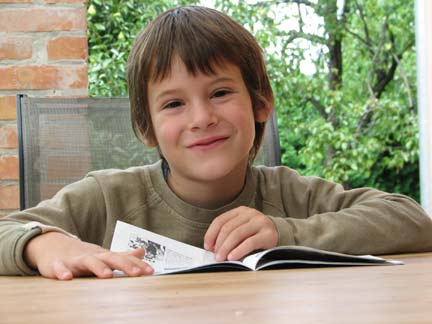Tips & Advice
Below is useful information for parents and guardians.
Please contact us if there is other info you think we should include.
Tips & Advice
Below is useful information for parents and guardians.
Please contact us if there is other info you think we should include.
The Power of Positive Attention:
Positive attention will reassure your child, build self-esteem and create a happier environment for the whole family. Parents should:
1. Make positive attention specific- Tell your child exactly what he or she did that you liked.
2. Give positive attention right away- Give your child positive attention while good behavior is happening and right after good behavior occurs.
3. Use powerful rewards- Be sure that the reward is something the child likes. Sometimes, let
your child choose one reward from a list of rewards. Rewards can be those things you already give your child no matter how they behave.
4. Avoid criticism- When your child learns something new he or she needs a lot of positive attention. First, talk about the good part of the behavior, and then tell him or her how to do better next time.
5. Carry out promises- When parents promise rewards for good behavior, they should carry out their promise.
6. Don’t give in- Parents should not give in ‘just a little’ when their children don’t obey all of the instructions. When parents give in sometimes, their children learn that they can get away with misbehaving sometimes.
7. Catch your child being good- Parents should watch for times their children are being good,
and praise and reward them right away. If the children are rewarded often for good behavior, they learn that they don’t have to misbehave to get attention.
8. Praise Frequently- Parents should praise their children as often as possible. Spend time with your children. This allows you more opportunity to reinforce and praise them.
9. Use play to enhance positive communication- By sharing activities with children, parents
can enhance communication. Activities should be child-directed rather than parent-directed. This involves parents commenting on the child’s behavior in a positive or neutral way during play.
Avoid instructions and criticisms.
More Tips For Parents About Behavior Management
For children of all ages:
1. Notice and acknowledge positive behaviors often!
2. Be aware of possible environmental triggers and avoid them.
3. Be aware and plan for rewards
4. Learn what you can and cannot expect from your child’s developmental level.
5. Set clear and simple rules but not too many. Stick to them.
6. Create/provide opportunities for your child to meet with success after a setback.
7. When your child misbehaves, Act Fast; Stay Calm. Explain the wrong and right behaviors. Do this in private and give the child choices when possible. Warn about the next time: Don’t punish
for accidents. Follow through: even if you get sad looks or a guilt trip.
8. If a child over 3 is losing control, consider sending him or her to a safe spot for a few minutes
to calm down. Rule of thumb- one minute for every year of age.
Organizations:
National Association of Private Schools for Exceptional Children
1522 K Street, NW Suite 1032
Washington, DC 20005 (202) 408-3338
Provides referrals to private special education programs.
National Center for Learning Disabilities
381 Park Avenue South, Suite 1420
New York, NY 10016 (212) 687-7211
Provides referrals and resources. Publishes “Their World” magazine describing true stories on
ways children and adults cope with LD.
National Information Center for Children and Youth with Disabilities (NICHCY)
P.O. Box 1492
Washington, DC 20013-1492
1-800-695-0285
(202) 884-8200
E-mail: nichcy@aed.org
URL: http://www.nichcy.org
Provides personal responses to questions on disability issues, referrals to other organizations and agencies, information searches of NICHCY databases and library, technical assistance to parent and professionals, as well as numerous publications, many of which are free of charge.
Orton Dyslexia Society
Chester Building, Suite 382
8600 LaSalle Road
Baltimore, MD 21286-2044 (410) 296-0232
Answers individual questions on reading disability. Provides information and referrals to local resources.



“Our only goal is to help children and adults fulfill their potential.”

DAIC, founded by Dr. Risa Tabacoff, a NY State licensed psychologist has been successfully maximizing potential in children and adults for
over 20 years.
Serving the New York City Tri-State area with offices at 35-B Adams Street, Bedford Hills, NY 10507
SERVICES :
ABOUT DAIC :